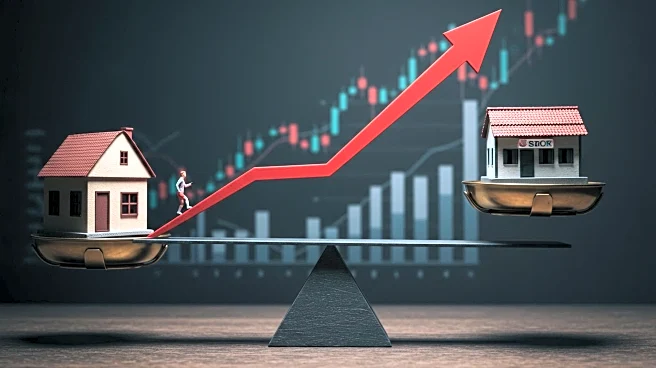What is the story about?
What's Happening?
UK inflation has unexpectedly accelerated in July, reaching its highest rate in over 18 months. The Consumer Prices Index (CPI) rose to 3.8%, up from 3.6% in June, surpassing economists' forecasts of 3.7%. The Retail Prices Index (RPI) also increased, potentially leading to significant rail fare hikes next year. The Bank of England has warned that inflation could reach 4% by September, driven by rising food and energy prices. Food inflation climbed to 4.9% in July, while transport and hospitality costs also contributed to the upward pressure. Kris Hamer from the British Retail Consortium highlighted the impact on households, noting the surge in food inflation and the challenges faced by retailers.
Why It's Important?
The rise in inflation is significant as it adds pressure on UK households already facing financial strain. The increase in food and energy prices could lead to higher living costs, forcing families to cut back on spending. Retailers are struggling to manage costs, which may result in further price increases. The situation poses challenges for the government and the Bank of England, which may need to address inflationary pressures to prevent economic instability. The retail sector, a key component of the UK economy, is under stress, with potential implications for employment and consumer spending.
What's Next?
Chancellor Rachel Reeves faces pressure to curb price rises, with the Bank of England warning of further food inflation by Christmas. The government may need to consider measures to alleviate the burden on households and the retail sector. Retailers might continue to face challenges in managing costs, potentially leading to more store closures or bankruptcies. The Bank of England's monetary policy decisions will be closely watched as they navigate inflationary pressures.














